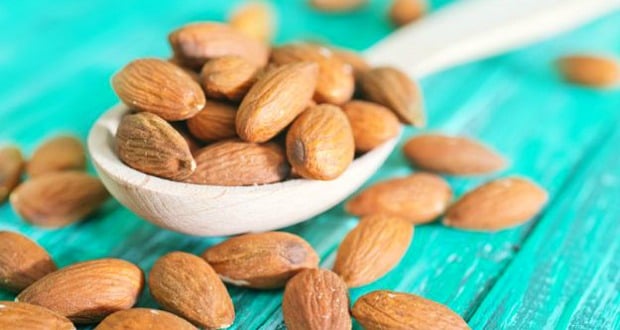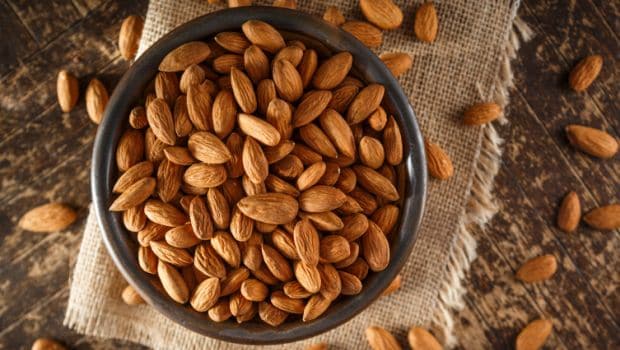There's a habit that most of us follow every morning - eating a handful of almonds that have been soaked in water overnight. Our parents follow it, who have of course learnt it from our grandparents. It's almost like a custom which has been followed across the Indian subcontinent over the years. And for good reason. According to Ayurveda, soaked almonds contain a host of nutrients that are very beneficial for our health. They are a good source of proteins, vitamin E and manganese, which all work towards keeping the heart healthy, strengthening the bones, reducing cholesterol and regulating blood pressure. Health experts also suggest munching on a few almonds in between meals to curb those sudden hunger pangs. They are a great snacking option - no junk and full of goodness. But you should restrict your intake to 8-10 soaked almonds per day, as they are high in monounsaturated fats.

Almonds and Heart Health
According to a study published in the journal Metabolic Syndrome and Related Disorders, daily consumption of almonds may significantly reduce the risk of cardiovascular diseases in Indians with Type 2 diabetes and improve their general health. This is because including almonds as part of a healthy diet may help improve glycemic control and cardiovascular risk factors.
"India is known as the diabetes capital of the world, with incidence of Type 2 diabetes currently reaching epidemic proportions," wrote the researchers. They attribute this higher and earlier incidence of Type 2 diabetes in part to the "South Asian phenotype," a genetic predisposition that makes Indians more susceptible to insulin resistance and Type 2 diabetes. The benefits of almonds are known by all, but it is the first free-living study that tried "to demonstrate the health benefits of including almonds in the diet among Asian Indians with type 2 diabetes," said Dr. Seema Gulati, lead researcher of the study.
The researchers conducted the study by recruiting 50 adults in Delhi, aged 25 to 70, all of whom had type 2 diabetes and elevated cholesterol levels. Post analysis, they found a significant decrease in a number of critical risk factors associated with type 2 diabetes, including waist circumference, waist-to-height ratio, total cholesterol, serum triglycerides, LDL cholesterol, HbA1c (a measure of long-term blood sugar regulation) and C-reactive protein (a marker for inflammation in the body).

The Research Study
"Almonds are traditional snack for Indians; however, for the first time we have been able to prove its scientific all-round benefits in patients with diabetes. We now have confidence in prescribing it to all patients as mid-meal healthy snacks," said Dr. Anoop Misra, co researcher.
During a three-week run-in period, participants ate a standard diet compliant with the dietary guidelines for Asian Indians and appropriate for diabetes. During this period, participants were also asked to walk for 45 minutes at least five days a week to standardise their physical activity and were instructed to maintain the same level of activity for the rest of the study. There were 50 participants who completed the study commissioned by the Almond Board of California in collaboration with DFI.
Following the run-in period, participants were instructed to substitute 20 per cent of their total caloric intake with whole, raw almonds (unblanched almonds with their brown skin intact). Almonds were substituted for fat (such as cooking oil and butter) and some carbohydrate in this intervention diet which was followed for six months.Inputs from PTI







